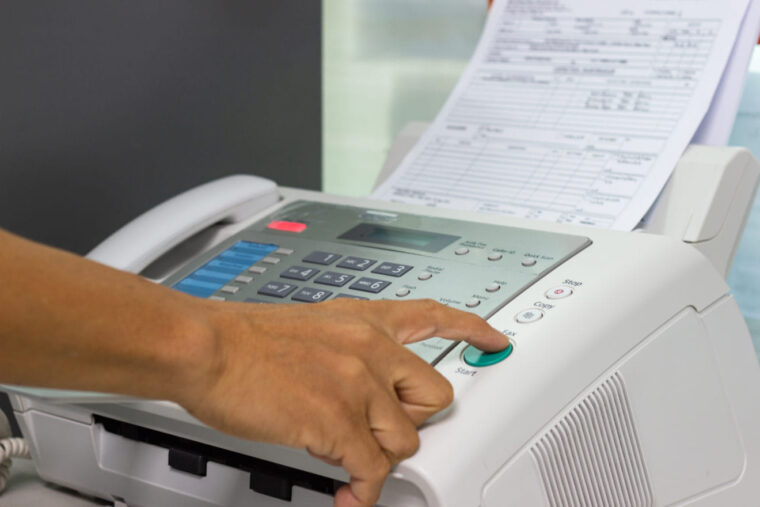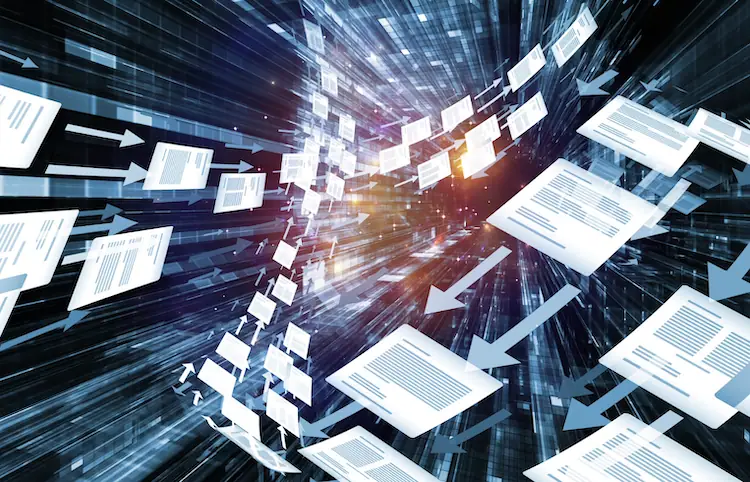In the rapidly evolving digital landscape, where instant communication and advanced technologies dominate, it may come as a surprise that fax services continue to thrive in businesses worldwide.
The enduring relevance of fax lies in its unique combination of security, legal compliance, reliability, and industry adoption. Despite the rise of email, messaging apps, and cloud-based file sharing, fax remains a preferred choice for various organizations.
In this blog post, we will explore the reasons behind this phenomenon and shed light on why fax service continues to hold its ground in the digital age.
Security: Importance of secure document transmission in businesses
Security is paramount for any business, especially when it comes to sensitive document transmission. While email and other digital communication methods have their benefits, they are vulnerable to hacking and data breaches.
In contrast, the security of communication operates over dedicated lines, making it less susceptible to cyberattacks. Additionally, the end-to-end encryption provided by modern services ensures that the information remains confidential throughout the transmission process.
This unparalleled security offered by fax service has led businesses to continue relying on fax, particularly for transmitting sensitive information such as legal documents, financial records, and medical reports.
Legal Compliance: Fax’s role in meeting regulatory requirements

The legal landscape demands that businesses adhere to various regulatory standards and compliance measures. These services have played a crucial role in meeting these requirements, especially in industries governed by strict data protection laws.
For instance, in the healthcare sector, the Health Insurance Portability and Accountability Act (HIPAA) necessitates secure communication of patient data, which it efficiently fulfills.
Moreover, certain legal systems still recognize documents as official records, adding to their appeal in the legal and financial sectors. This compliance-friendly aspect makes fax an attractive choice for businesses navigating complex regulatory environments.
Legacy Systems: Businesses maintaining older communication methods

Although modern technologies have transformed communication, some businesses still rely on legacy systems and processes.
Many established enterprises, government agencies, and healthcare institutions continue to operate with older infrastructure that includes machines and analog phone lines.
Transitioning away from these systems can be expensive and time-consuming, and as long as these organizations remain functional, service will retain its significance.
Integrating fax with modern VoIP technology

Recognizing the need to bridge the gap between traditional fax and modern communication methods, fax over IP (FoIP) has emerged as an innovative solution. FoIP allows communication to be transmitted through the internet, aligning it with Voice over IP (VoIP) systems.
This integration has facilitated the inclusion of services in Unified Communications platforms, making it more accessible and user-friendly for businesses adopting a holistic approach to communication.
FoIP ensures that it remains compatible with evolving technology, contributing to its continued acceptance in the digital age.
Reliability: Fax is a dependable communication tool in emergencies
One of the significant advantages of fax is its reliability, especially during critical situations and emergencies. Unlike digital communication channels that may suffer from internet outages or server failures, transmissions are less prone to disruption.
This makes fax a go-to communication tool in times of natural disasters or cyberattacks when traditional methods may fail.
Businesses value its ability to maintain connectivity and ensure that important messages are delivered even under adverse conditions, underscoring its reputation as a dependable fallback option.
Signature Verification: Legal recognition of faxed signatures

In various industries, obtaining signatures on contracts, agreements, or official documents is a routine requirement. Fax’s unique advantage lies in the legal recognition of signatures in many jurisdictions.
Electronic signatures on emails or digital documents might face challenges in courtrooms, but signatures hold more weight in terms of authenticity.
This factor has led businesses, particularly those in the legal, real estate, and financial sectors, to trust it for critical documentation, solidifying its position as a vital part of their operations.
Industry Adoption: Specific sectors favor fax in their operations
Several industries have integrated services seamlessly into their workflow, cementing their relevance. The healthcare sector, as mentioned earlier, relies heavily on it for transmitting patient records and medical information securely.
Similarly, government agencies often prefer it for confidential communication due to its robust security features. The legal industry, where paperwork is the backbone, finds it indispensable for its official documentation needs.
Moreover, the education and finance sectors also rely on it to facilitate secure and confidential exchanges. This widespread industry adoption has kept services in the spotlight despite the digital revolution.
International Communication: Benefits for global interactions
Businesses with international operations face unique challenges when it comes to communication. Inconsistencies in internet connectivity and differing data protection laws can hinder digital channels in cross-border exchanges.
Fax, with its reliable transmission and legal recognition, provides a dependable solution for businesses conducting global operations. Additionally, services often offer translation capabilities, enabling organizations to communicate effectively with partners and clients from diverse linguistic backgrounds.
This international versatility further adds to the reasons businesses continue to embrace it in the digital age.
Paperless Faxing: Environmental advantages of digital solutions

Concerns about environmental sustainability have become increasingly important for businesses across industries. While traditional machines consume paper, modern digital fax solutions have embraced paperless alternatives.
Cloud-based services and document management systems allow for seamless transmission and storage of faxes without printing a single page. This eco-friendly approach aligns with the growing green initiatives in the corporate world, providing a compelling reason for businesses to choose environmentally responsible communication methods.
Conclusion: Recap of reasons businesses still embrace fax
In conclusion, the enduring relevance of fax service in the digital age can be attributed to its unparalleled security, compliance with legal requirements, integration with legacy systems, adaptability through FoIP, reliability in emergencies, legal recognition of signatures, widespread industry adoption, suitability for international communication, and environmentally conscious paperless options.
Despite the technological advancements that have revolutionized communication, businesses continue to recognize the value of fax in certain situations and industries.
By striking a balance between tradition and innovation, service remains a vital tool for efficient and secure communication in the modern business world.
